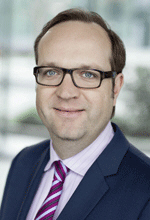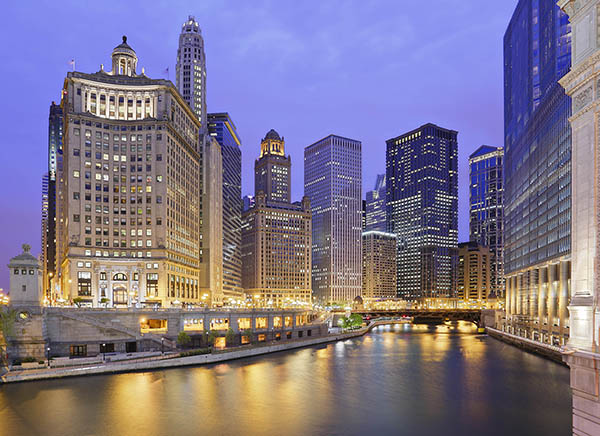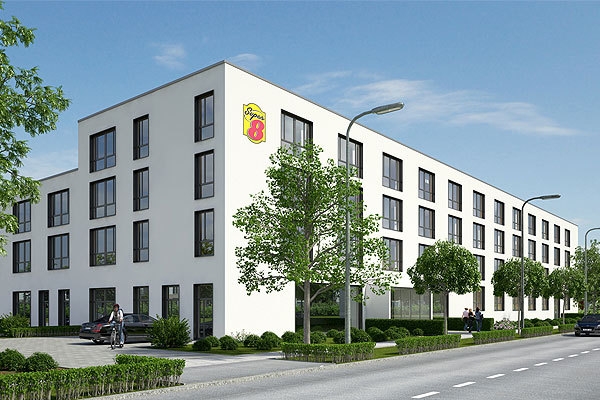As head of hotel investments at Hamburg, Germany-based Union Investment Real Estate, Andreas Löcher oversees a portfolio of some 50 hotels valued at around €3.2 billion. And while the portfolio skews heavily German, in just the past two years it's added three U.S.-based hotels, making the country its second-largest region by asset.
At next month's International Hotel Investment Forum (IHIF), Löcher will participate in a panel entitled "Re-Thinking Strategies for Maximum Profitability" along with several other owners, focusing on partnerships with brands and OTAs, business models and operations. IHIF caught up with Löcher prior to the conference to discuss the latest global hospitality trends, with specificity on Europe, and how Union Investment views the debt markets and acquiring assets in the U.S.

1. A recent CBRE report stated that investment in Germany is still tops in Europe. Is Germany still the best place to acquire and develop property in Europe?
Germany is our home base, so we have experience and know how to deal with the market. We know all the details and the pitfalls, so we, of course, keep our focus on Germany. The market fundamentals have been going up for quite some time, so the overall prospects are good. That’s the overall opinion of the market and, because so, there are more and more international players coming into play, which of course is putting some pressure on the yield. One of the biggest issues we face now is the availability of quality product in the market.
2. Beyond Germany, where else are you looking in Europe? What other markets are smart from an investment standpoint?
We look at Paris [where Union Investment currently has a Meliá hotel in its portfolio]. As a conservative investor these days, we are always looking at the long run, so, of course, Paris is definitely an option for us—always bearing in mind the current situation and seeing how that should be factored in.
We have been regarding Amsterdam as a good target for many years, and we are now going again into Amsterdam with an investment. That’s really one of the key markets we are focusing on.
RELATED: How Union Investment Real Estate is restructuring
3. Union Investment has made three acquisitions in the U.S., starting with the Godfrey in Boston, LondonHouse in Chicago and, most recently, the Courtyard at the World Trade Center in New York. The Chicago property was the largest per-room acquisition since the Waldorf-Astoria was sold in Chicago. So you’re making a lot of noise in the U.S. What’s behind that strategy to acquire property in the U.S.?
It’s something we have been looking to realize for quite some time and now for the last, let’s say 12 months, successfully realized investing in these three assets under a lease agreement—and that’s actually also one of the reasons why this structure is not 100-percent comparable to deals where your underlying fundamentals are through a management agreement.
We would like to diversify our hotels. We see the U.S. market as going sideways, and performance-wise even sometimes slightly downward. New York City is expecting a short-term decline. So we do find the market is interesting, and particularly good time to buy at a relatively good price. In a very hot market, in the U.S., deals are going very quickly, and you sometimes don’t have the time that is required to properly structure the lease agreement so that it will be valid. We're doing good research for the long run.

4. Are you more of a long-term investor, or will you look to buy an asset and, three years down the line, sell it? Is there a strategy there?
We are clearly long-term investors. We are not buying then flipping in two or three years—that’s definitely not our strategy. Not at all. As we are doing investments on a lease-agreement basis, we always look at the lease terms. We are not about short-term maximization, but more about having a long-term, solid inflow and return on investment.
5. Union Investment will buy up and down the chain scale. You bought a Super 8 in Munich. You’re buying budget and luxury hotels. You are agnostic when it comes to that, and will buy in any segment.
There are two aspects here. The Super 8 is very good quality for a Super 8. It’s not comparable to the Super 8 product that you find in the U.S.—a real quality product. They’ve done a great job here of designing the hotel room and really using good-quality material. We currently have eight funds looking for real estate. Institutional money, some dedicated to smaller-ticket sizes and focused-serviced hotels. We also have open-ended funds, looking for big-ticket sizes and will go more international. So different funds have different targets

6. How would you characterize the financing and lending markets in Europe right now, for acquisitions and new-builds?
There is good coverage. The hotel balance is very nicely available. We like to invest the money that's in the funds. So the lending environment is not so important to us within Germany, but we do finance in the U.S., up to—let’s say—50 percent LTV, in order to have a so-called natural hatch, only need to hatch 50 percent of the investment volume, so that very much helps to boost return.
7. What is your outlook for 2017, both for Union Investment and hospitality industry in Europe? We talked about what’s happening politically, with the Brexit, with the referendum in Italy, softness in Paris and Brussels from terrorist attacks? What is your outlook for 2017?
For 2017, I don’t see a lot of change. It may be different in 2018, but first of all the political issues in Europe—I’m an optimist and I don’t expect right-wing parties to take over in none of the countries. People are now starting to choose common sense. They really appreciate what the advantages of the EU are bringing to them.
I’m sure that people now realize when you see in certain countries the right-wing doesn’t bring a solution to anything at all. I would say the fundamentals from the political side are fine and everything will be smoothing out over the course of the year. I hope I’m not wrong here. We won’t know until the end of the world, but that’s my personal view, and we’ll see what the year brings.
Follow IHIF 2017 on Twitter @IHIF_News and use #IHIF2017 to stay up to date with the latest news from the leading annual meeting place for the industry. Also find us on Facebook and join our LinkedIn group for industry insight and discussion.
